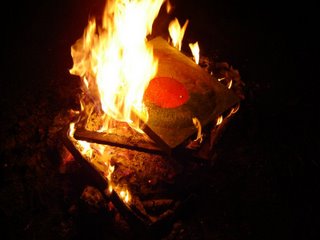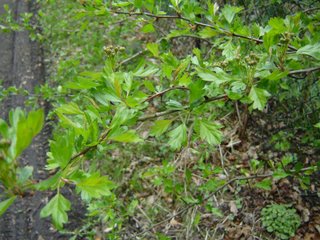So, I was six months pregnant: my waters had broken: the likeliest thing was that I would go into labour and the baby would be born prematurely.
But I didn't seem to go into labour: I had been taken into hospital on a Monday evening and now, here we were, the following Saturday. The general opinion of the hospital staff seemed to be that my waters hadn't broken at all: I had made up this story for my own selfish pleasure in order to spend a week in a side ward while they forgot to bring me any food and gave me disparaging looks.
"Don't think you're having a miscarriage just because your mother did," said a nurse.
"How do you know that?" I asked, rather bewildered.
"You're mother's been ringing up. She told us."
"Well, my mother's miscarriages were different. They were early on in preg - - "
But she had gone. And, not allowed to get out of bed, I could not follow.
By early on Sunday morning I was convinced I was in labour. Something very strange was going on, certainly. The entire lower half of my torso felt blocked up: and there was a funny rippling feeling down my back. No pain though and in every training manual and every lecture throughout the world at that time, apparently, labour meant pain.
"Don't be silly, of course you're not in labour."
"Well, how would I know if I was?"
An arch look. "Oh, you'd know, dear, you'd know."
"Can you get a doctor to examine me?"
An audible sigh of exasperation. "The doctor's round is at midday. I'll get someone to look at you then. But take it from me, you're not in labour. Now stop ringing the bell. We've got other patients to attend to, you know."
Two things I would have liked to have pointed out to her: firstly, that unless I rang the bell nobody ever came into my room, not ever. Secondly - and I didn't know this yet - what if my mother had been given a drug when she was pregnant with me that probably - though never proved in court - caused womb deformities in the daughters? And that meant that my womb didn't contract properly, and hence gave me hardly any pain?
It was before the days of mobile phones or I would have rung my family for help. I had a wild notion of sneaking out and presenting myself at Accident and Emergency as a woman in labour, but I didn't know where it was. So I waited.
At twelve o'clock a very young doctor half-entered my room with the same nurse behind her.
"This patient keeps saying she's in labour, but we know she's not, so I don't know why she keeps saying it," said the nurse, with no attempt to conceal her words from me.
"What are your symptoms?" asked the doctor.
"Well, I have a strange rippling feeling down my back, and I feel all blocked up - - "
"You can't possibly have any kind of a blockage. Only old men get them. If you were in labour you'd have lots of pain. If you do get pain, ring for the nurse. Goodbye - - "
It is hard to be assertive in such circumstances but it was now or never.
"STOP! I have been waiting all morning for a doctor to come. And now you are here, I want you to examine me. And if you can't find anything, I promise I'll shut up."
"Oh, very well, if you insist," she said.
I remember all this conversation word for word - I made a mental note of it all at the time, and wrote it down as soon as I could afterwards.
And the next thing she said was "Oh shit, the baby's head."
With sudden astonishing haste they threw me onto a trolley and I was rushed along the corridor to the delivery room.
"I'm going to cut you now just to make a bigger opening for the head. No time for an anaesthetic," she said. If it hurt, I didn't notice.
I was taken out of the ward at two minutes past midday. Laurence was born at five past. He blinked, so I knew he was alive, and they took him away to the special care unit.
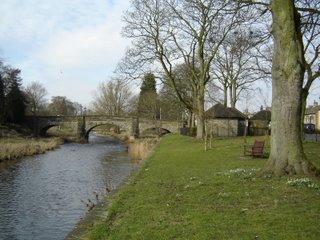
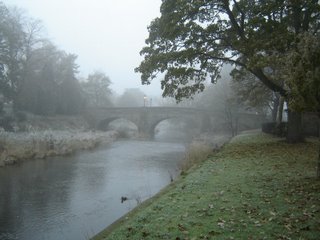
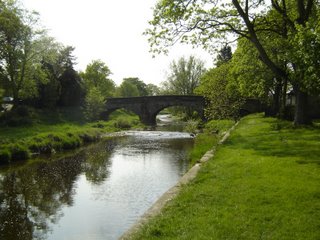
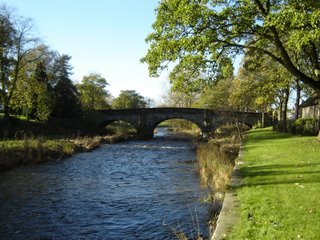
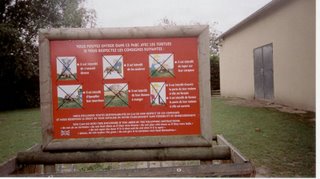
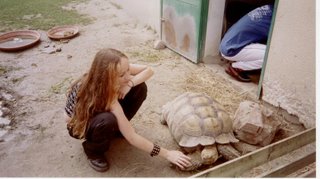


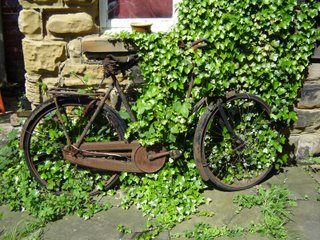
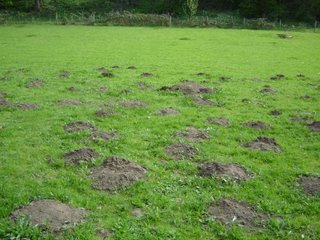
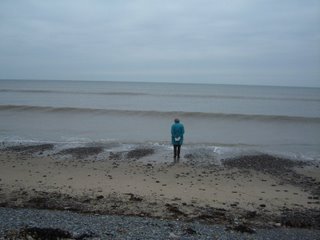
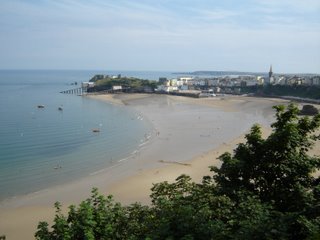



 I took this photo at dusk so it's a bit dark. If you click on
I took this photo at dusk so it's a bit dark. If you click on 

 So did Canal Gardens, which is also part of Roundhay Park:
So did Canal Gardens, which is also part of Roundhay Park: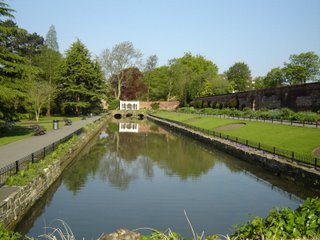










 Or this, in the same village, made of wood:
Or this, in the same village, made of wood: Art or craft? It's strange that we can admire the skill of craftspeople and then say, disparagingly, "but it's not art". Why should it try to be? And what's the difference?
Art or craft? It's strange that we can admire the skill of craftspeople and then say, disparagingly, "but it's not art". Why should it try to be? And what's the difference?

